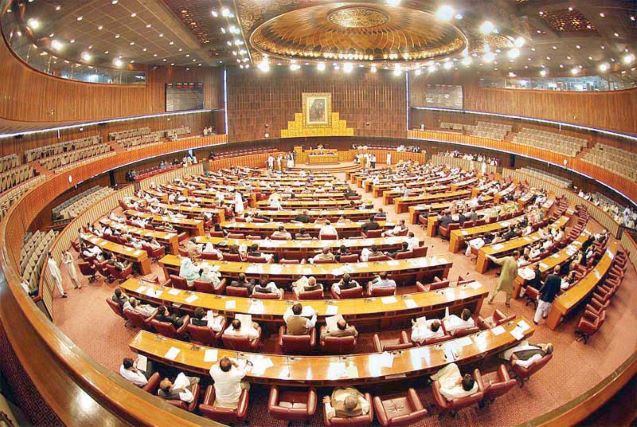National Assembly Standing Committee on Human Rights Chairperson Dr Mahreen Razzaq Bhutto on Thursday criticised officials of the National Commission for the Rights of Child (NCRC) over its “zero” performance on matters relating to children’s rights.
In a committee meeting, Dr Bhutto, along with other Senate members expressed concern over children in the commission not receiving compensation for their work with the panel and the failure to confirm the “rules of the Zainab Alert Bill”.
The meeting chair warned the NCRC director general that he should improve his performance and no further relief would be granted. “The performance of the national commission for children is zero,” she said.
“The commission had the chance to show their performance but no work was done.”
Dr Bhutto also expressed dismay for not receiving the rules for the Zainab Alert, Response and Recovery Bill that was passed in March 2020.
“It has been [almost] three years since the Zainab Alert Bill was passed. If the rules for the Zainab Alert Bill are not received by Jan 17, a privilege motion will be submitted,” she said.
She stressed that the rules should be made within six months after a bill has been passed.
Adiala Jail concerns, mental health centres unlicenced
During the meeting, National Commission for Human Rights (NCHR) Chairperson Rabiya Javeri Agha highlighted the “extremely poor” conditions of Rawalpindi’s Adiala Jail, where prisoners were tortured and 82 children were imprisoned — as revealed by an NCHR report in October 2022.
“The condition of Adiala Jail is extremely poor. The prisoners have been tortured so much that their skin has come off.”
Reiterating the findings of the NCHR report Torture at Adiala Jail, Agha said, “There were 82 children imprisoned at Adiala Jail, to whom we provided lawyers [later].”
She said, “When we asked to get the children released on bail, no one was ready to take the children.”
The NCHR chairperson revealed that the officials at Adiala Jail are “very influential; it is very difficult to transfer them. The Adiala Jail officials have connections all the way up.”
She added that drugs were also allegedly provided to the prisoners.
Agha highlighted that after the NCHR report, seven officers were sacked, four were suspended and another 38 were transferred. She mentioned that the high court also ordered a complaint cell to be formed at the jail.
Abdul Qadir Mandokhail, another member of the committee, said: “Drugs are being easily supplied to jails and academic institutions.”
During the meeting, Agha also spoke of unlicenced mental health centres in the capital, which reportedly detain people against their will. “There are 20 such mental health centres in Islamabad operating without a licence,” she said.
She recalled a case of a girl contacting them for help as her “friend had been abducted” but when the organisation team went to meet the said friend, she had been held at a medical health centre.
The NCHR report’s impact
The NCHR team made seven visits to the Adiala Jail starting from Sept 21, 2022 — during which, numerous prisoners complained of torture and cruel, inhuman and degrading treatment suffered at the hands of jail authorities.
Upon the revelations in the resulting report, the Islamabad High Court ordered the government in October 2022 to assist the NCHR in the formation of a complaint cell in the jail to curb the prevalent abuses.
It also recommended action against Punjab’s inspector general (IG) of prisons, after which the IG dismissed seven officials of Central Jail Adiala after they were found guilty of mistreatment and torture of inmates of the prison.
However, the human rights ministry failed to end the incarceration of the under-trial juvenile prisoners “for lack of funds to submit surety bonds”.__Dawn.com





